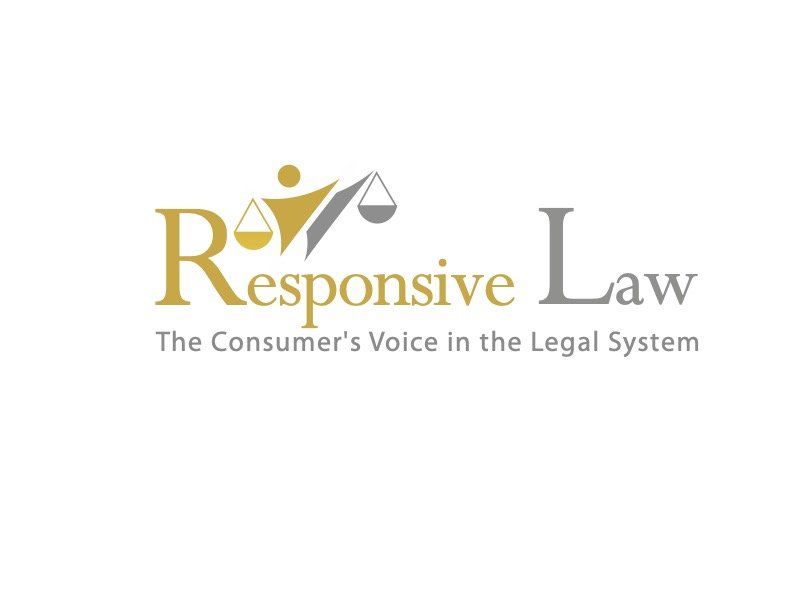Litigating UPL in the US
Other reform efforts stumble

Anyone that has read my blogs over recent years will know that I am not a fan of the overly restrictive regulatory regime in place across the US. The combination of the rules on unauthorised practice of law and the ban on fee sharing mean that lawyers have a monopoly on one of the most significant markets in a modern society and economy. It is a monopoly that has not served the public well.
Vast number of ordinary Americans cannot afford basic legal services. The legal services that can help them handle health issues, family life, housing, debt and work are largely beyond the reach of most ordinary people. Similarly small businesses. The legal advice needed to protect intellectual property, sell on-line, trade across borders, take on a first lease or employee are largely inaccessible to start ups and small businesses. Small business legal services appear to me to be largely delivered in a way that suits lawyers rather than clients – open ended costs, relationship destroying and disproportionate to the issue at hand. It is no better for large and global corporations. It isn’t because AMLAW 100 deliver great value that GCs are taking more work in house or turning to alternative suppliers. Just look at the levels of margin in law firms to get a sense of their monopoly position. It isn’t good for anyone but the owners of law firms and it is time for change.
How to deliver that change? I see four main routes.
First, a couple of States have delivered reform – Utah and Arizona. But those that looked like they would follow have stalled. Florida’s Supreme Court has decided that attorneys matter more than clients and certain members of the Californian legislature have tried to stop the State Bar progressing its plans for reform – no surprise that local attorneys make significant donations to their election campaigns. We cannot rely upon lawyers to reform themselves – the more they talk about ethics the less convinced I am.
The second route is to bypass regulatory restrictions. Increasingly it is possible to deliver alternatives to regulated legal services. A range of businesses have been meeting the needs of citizens, small business, and GCs without infringing UPL or fee sharing rules. Legal Zoom, Rocket Lawyer, Axiom, Elevate, the Big Four have spent upwards of twenty years developing services that clients value. While State Bars, like 16th century Guilds, are working to protect their monopolies, new entrants are simply making their Guild irrelevant. Despite huge numbers of people and small business using these online services, and most large companies using alternative providers, law firms and attorneys are still able to make vast revenues and late capitalism style super profits without the normal risks of being in business. Their profits are utterly disproportionate to investment risk – and that alone should draw the attention of the Federal Trade Commission.
Third is the imagination of new entrants, investors, and their advisers to go beyond what alternative providers have already delivered. Using ABS where allowed, or innovative models that are not ABS, firms are starting to find ways of delivering across the US, even in the most restrictive of States, without breaching UPL or fee sharing restrictions. This is real progress but until it is mainstream most attorneys will not be driven to compete and innovate. It is marginal in its impact on consumers at present, but State Bars should be clear that this is part of what killed off every other Guild and their fate will be the same in the long run. (You might ask how they do this – well drop me an e-mail).
So to the fourth route to reform. Litigation. I have long thought that directly challenging UPL and fee sharing bans would fall within one or more of anti-trust law, Federal Government’s constitutional interest in inter-State trade, and the full faith and credit clause of the constitution. I am no lawyer so will leave others to explore the arguments, but it is great to see Rohan Pavuluri, founder of Upsolve launch a challenge to UPL in the New York Courts. Rohan has set up a non-profit – The American Justice Movement which is taking a case alleging that the regulatory restrictions that prevent ordinary Americans form getting free vetted and accountable legal advice from trained professionals who are not lawyers is a breach of their free speech rights.
Additionally, it is worth looking at some of the specific papers and coverage:
- Full case papers
- Amicus briefs submitted by The NAACP, The Institute for Justice, The National Center for Access to Justice, 25 law professors (includes former Harvard Law Dean Martha Minow), and Prof Rebecca Sandefur (MacArthur Award winner & American Bar Foundation Researcher)
- NAACP, profs seek to back non-profit in lawsuit over free legal advice program (Reuters)
- They Need Legal Advice on Debts. Should It Have to Come From Lawyers? (The New York Times)
- UPL, Upsolve, and the Community Provision of Legal Advice (Stanford Law School)
The likelihood is of a hearing in the summer and it’s not hard to predict that any outcome with go to appeal. Beyond that we might guess that Associate Justice Neil Gorsuch will be looking forward to getting this into the Supreme Court given his prior comments on regulatory reform. Who might speculate on what he said to the Federalist Society earlier this year? A decision from the Supreme Court (if it gets that far and they take it up) may be three years away but that is faster than almost all States can manage.
What are the implications of this case? It looks specifically designed not to scare the Court into thinking that this is a case about UPL in its entirety. The case is focused on services for people that cannot afford legal services from attorneys rather than a general attack on UPL. That is a smart move but removing this one brick will probably make the whole wall weak and very quickly it might crumble if it is attacked int he right way. If you read some of the amicus briefs the legal arguments seem to my uneducated eye to apply way beyond the scope of this case. What chance parallel litigation from a commercial provider, a law firm wanting to innovate or an investor to take this case to the foundations of the lawyer monopoly?
This fourth route may prove, alongside the third route, to be the most effective way to bring an American free market approach to legal services as well as being the best way to tackle the core subject of the litigation – access to free or low-cost legal services for poor and vulnerable citizens.
It strikes me that it doesn’t really matter if you come at the legal market as a free marketeer or a state interventionist seeking to deliver equality you get to the same place. Our economy and society is based on a clear public policy acknowledged by the US Supreme Court: “a legislative judgement that ultimately competition will produce not only lower prices, but also better goods and services... The assumption that competition is the best method of allocating resources in a free market recognizes that all elements of a bargain – quality, services, safety, and durability – and not just the immediate cost, are favourably affected by the free opportunity to select among alternative offers.”[1]
The centrist position must be that if we want the right incentives for ethics and quality; genuine redress for consumers when needed, innovation, improved choice, and growth, then we need a properly regulated market that puts consumers at the heart of design and delivery. Right and left wingers can argue over prioritisation between access to justice, growth and the nature of regulation but the only people that attempt to defend the economic restrictions that are UPL and fee sharing bans are lawyers with a vested interest. What a shame that they have captured the state and institutions so that they are the decision makers on reform. It has been challenged in other professional markets and we need the FTC to step in to tackle attorney control of State Bars too.
But the time has come to coalesce around litigation as an adjunct to other reform activity. Rohan Pavuluri and the American Justice Movement probably need to raise another $500k to fund the case through to appeal[2]. But we also need to see more challenges to UPL and fee sharing on behalf of the whole market using a wide range of legal arguments. The end position is inevitable because the current restrictions simply do not bare independent scrutiny so let’s just cut to the chase and deliver reform. It is time for leadership and perhaps the Courts will offer it if lawyers cannot.
[1] (National Society of Professional Engineers v United States, 435 US 679,695 (1978))
[2] contact me if you want to help put cash behind this case










